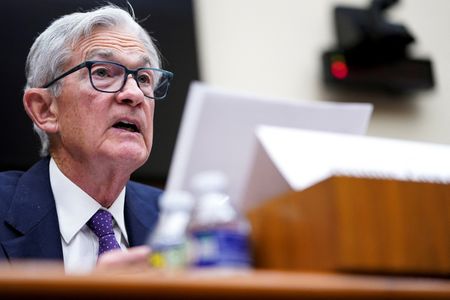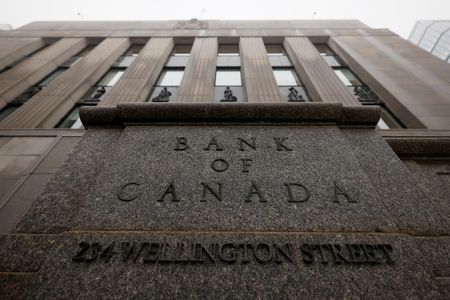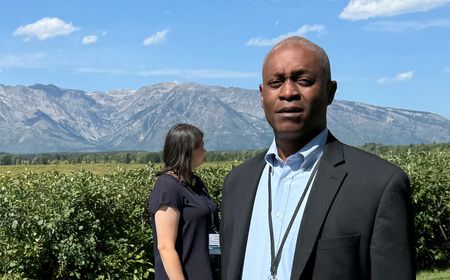By Howard Schneider
WASHINGTON (Reuters) – Federal Reserve Chair Jerome Powell repeated on Wednesday that the central bank is in no rush to cut interest rates during a congressional hearing convened shortly after data showed U.S. consumer prices rose faster than expected in January in a sign progress on inflation may remain stalled.
“We are close but not there on inflation. Today’s inflation print…says the same thing,” Powell told the House Financial Services Committee. “We have made great progress…but we are not quite there.”
“We want to keep policy restrictive for now,” Powell said in reference to Fed plans to hold its benchmark interest rate steady until it is clear inflation will decline to the central bank’s 2% target.
Rising prices for housing, food and energy, with a sharp increase also for used autos, pushed the Consumer Price Index up at a 3% annual rate in January versus 2.9% the month before.
The change was slightly above analysts’ expectations, and is likely to bolster reluctance at the Fed to cut interest rates any further as policymakers wait for signs that price pressures in the economy will continue to ease.
Under questioning from lawmakers, Powell reiterated that he agreed the Fed was late in beginning to raise interest rates when inflation surged in 2021, but “I don’t know how much difference that would have made” given the eventual pace of rate hikes and the subsequent decline in inflation.
An upcoming review of the Fed’s monetary policy strategy, however, will examine the experience of recent years and “we are going to be open to criticism and will make appropriate, discrete adjustments.”
The jump in consumer staples, with gas prices up 1.8% over the month and food at home up half a percentage point, could also feed into public expectations about inflation that the Fed feels are important to control.
Headline consumer inflation has now risen four months in a row, prompting traders to bet the Fed will not cut the benchmark policy rate again until September, and now expect that to be the only reduction this year.
President Donald Trump on social media again called for lower interest rates to go “hand in hand” with the tariff hikes he has imposed and is planning, a repeated comment that Treasury Secretary Scott Bessent has said is intended to refer to long-term bond yields, not Fed policy.
But long-term rates also jumped on the inflation news, with the yield on the 10-year Treasury note rising around 10 basis points to 4.6%.
In testimony to the House panel, Powell repeated the same opening statement delivered in a Tuesday hearing before the Senate Banking Committee.
Inflation has been the central bank’s top concern since it began to surge in 2021 to the highest levels since the 1980s and prompted the Fed to approve a rapid set of rate increases.
Inflation has since eased back towards the central bank’s 2% target. But after beginning to cut rates last year the Fed has since moved to the sidelines with policymakers saying they are prepared to stay on hold until inflation resumes its decline and they get more clarity on the direction of the economy under the new Trump administration.
“We do not need to be in a hurry,” Powell told the Senate Banking Committee at Tuesday’s hearing.
That session strayed far beyond monetary policy as lawmakers questioned Powell about his views on tariffs given the import taxes being rolled out by Trump, the integrity of the U.S. Treasury’s payments system, and the state of a separate agency, the Consumer Financial Protection Bureau, that may be eliminated by the new administration.
(Reporting by Howard Schneider; Editing by Andrea Ricci)












